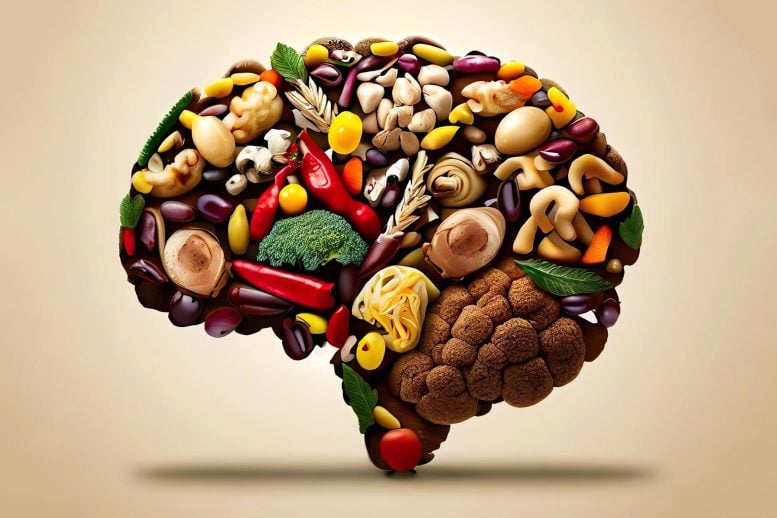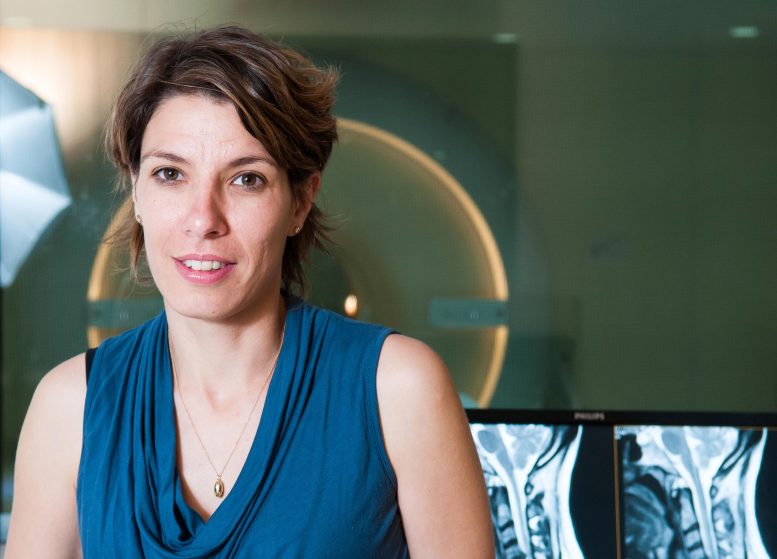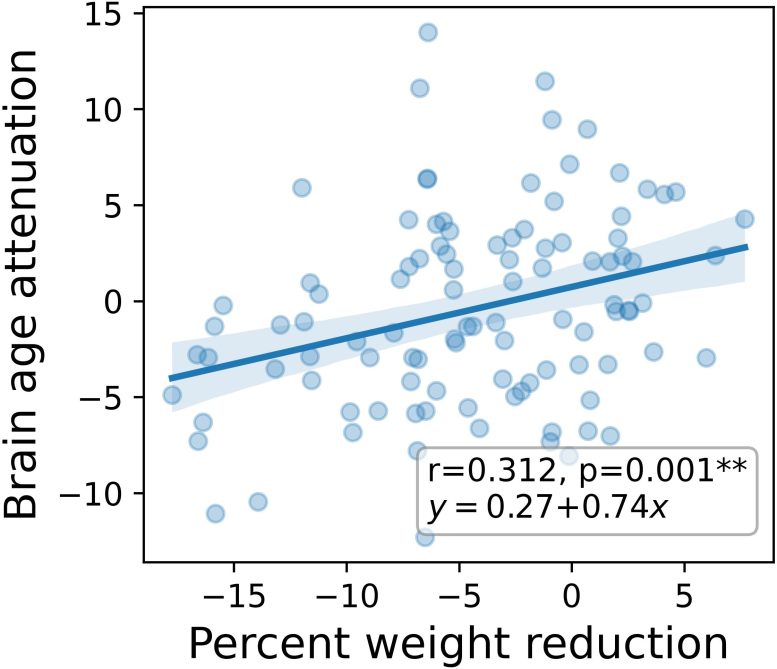
A Green Mediterranean Diet can slow brain aging, according to a study from Ben-Gurion University. Researchers found that a 1% reduction in body weight can make the brain appear nearly 9 months younger over an 18-month period. This discovery offers a potential method for slowing obesity-driven brain aging and a strategy for evaluating lifestyle changes’ impact on brain health.
New findings from a long-term diet trial show a positive effect on brain health.
Switching to a Green Mediterranean Diet positively affects brain health, according to new research from Ben-Gurion University of the Negev. Weight loss attenuated brain aging in a sub-study of the DIRECT-PLUS trial.
DIRECT PLUS was a large-scale, long-term clinical trial over 18 months among 300 participants.
The sub-study was conducted by Prof. Galia Avidan of the Department of Psychology and Dr. Gidon Levakov, a former graduate student at the Department of Cognitive and Brain Sciences.
Their findings were published recently in the scientific journal eLife.

Prof. Galia Avidan. Credit: Dani Machlis/BGU
The larger study was led by Prof. Iris Shai of Ben-Gurion University of the Negev, an adjunct Professor from the Harvard School of Public Health and an honorary professor at the University of Leipzig, Germany, along with her former graduate student Dr. Alon Kaplan, and colleagues from Harvard and Leipzig Universities.

Dr. Gidon Levakov. Credit: BGU
Obesity is linked with the brain aging faster than would normally be expected. Researchers can capture this process by calculating a person’s ‘brain age’ – how old their brain appears on detailed scans, regardless of chronological age. This approach also helps to check how certain factors, such as lifestyle, can influence brain aging over relatively short time scales.
Levakov, Kaplan, Shai, and Avidan studied 102 individuals who met the criteria for obesity. The participants received a brain scan at the beginning and the end of the program; more tests and measurements were also conducted at these times to capture other biological processes affected by obesity, such as liver health.
They used the brain scans taken at the start and end of the study to examine the impact of the lifestyle intervention on the aging trajectory. The results revealed that a reduction in body weight of 1% led to the participants’ brain age being almost 9 months younger than the expected brain age after 18 months. This attenuated aging was associated with changes in other biological measures, such as decreased liver fat and liver enzymes. Increases in liver fat and production of specific liver enzymes were previously shown to negatively affect brain health in Alzheimer’s disease.

Credit: BGU
“Our study highlights the importance of a healthy lifestyle, including lower consumption of processed food, sweets, and beverages, in maintaining brain health,” says Dr. Levakov.

Prof. Iris Shai. Credit: Dani Machlis/BGU
“We were encouraged to find that even a weight loss of 1% was sufficient to affect brain health and lead to a 9-month reduction in brain age,” says Prof. Avidan.
The findings show that lifestyle interventions that promote weight loss can have a beneficial impact on the aging trajectory of the brain seen with obesity. The next steps will include figuring out whether slowing down obesity-driven brain aging results in better clinical outcomes for patients. In addition, the study shows a potential strategy to evaluate the success of lifestyle changes on brain health. With global rates of obesity rising, identifying interventions that have a positive impact on brain health could have important clinical, educational, and social impacts.
The DIRECT-PLUS trial research team was the first to introduce the concept of the green-Mediterranean, high polyphenols diet. This modified Mediterranean diet is distinct from the traditional Mediterranean diet because of its more abundant dietary polyphenols (phytochemicals, secondary metabolites of plant compounds that offer various health benefits) and lower red/processed meat. On top of a daily intake of walnuts (28 grams), the green-Mediterranean dieters consumed 3-4 cups of green tea and 1 cup of Wolffia-globosa (Mankai) plant green shake of duckweed per day over 18 months. The aquatic green plant Mankai is high in bioavailable iron, B12, 200 kinds of polyphenols and protein, and is therefore a good substitute for meat.

Dr. Alon Kaplan. Credit: BGU
Reference: “The effect of weight loss following 18 months of lifestyle intervention on brain age assessed with resting-state functional connectivity” by Gidon Levakov, Alon Kaplan, Anat Yaskolka Meir, Ehud Rinott, Gal Tsaban, Hila Zelicha, Matthias Blüher, Uta Ceglarek, Michael Stumvoll, Ilan Shelef, Galia Avidan and Iris Shai, 6 April 2023, eLife.
DOI: 10.7554/eLife.83604
Additional researchers included: Anat Yaskolka Meir, Ehud Rinott, Gal Tsaban, Hila Zelicha, and Prof. Ilan Shelef of BGU, as well as Matthias Blüher, Uta Ceglarek, Michael Stumvoll of the University of Leipzig.
This work was funded by grants from the Deutsche Forschungsgemeinschaft (DFG, German Research Foundation) – Project number 209933838- SFB 1052; the Rosetrees Trust (grant A2623); Israel Ministry of Health grant 87472511; Israel Ministry of Science and Technology grant 3-13604; and the California Walnuts Commission.
None of the funding providers took part in any stage of the design, conduct, or analysis of the study, and they had no access to the study results before publication.









Why stop at a green Mediterranean diet? Why not go 100% whole food plant based for even better results on dementia as well as up to 80% of all other chronic diseases?